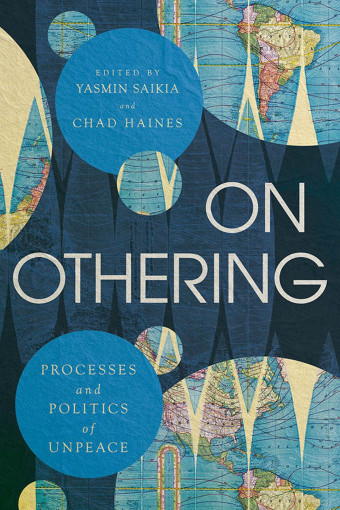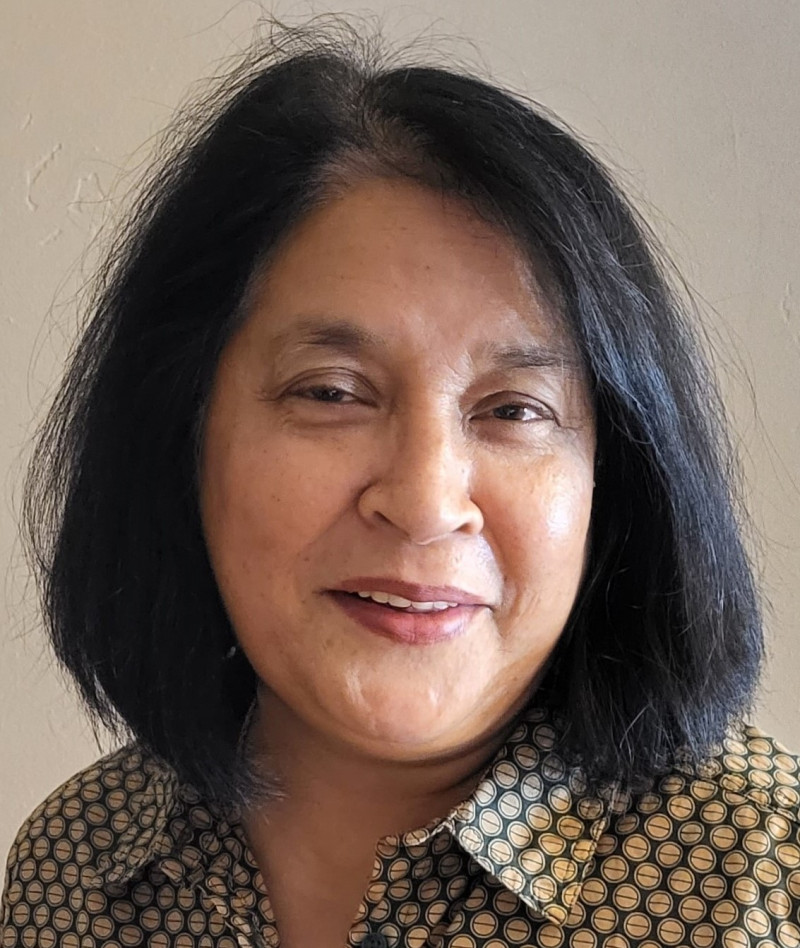Arizona State University scholars Yasmin Saikia, a professor of history and the Hardt-Nickachos Endowed Chair in Peace Studies, and Chad Haines, a professor of religious studies and Senior Global Futures Scholar, are the editors of the timely collection On Othering: Processes and Politics of Unpeace.

- On Othering
- Yasmin Saikia (Editor), Chad Haines (Editor)
- Athabasca University Press
- $39.99 Paperback, 360 pages
- ISBN: 978-17-71993-86-9
“Our concern is to critically engage with the issue of differences and provide a pathway to seeing difference not as a threat, but as the foundations for peace,” the editors say in a collective response.
Saikia and Haines solicited contributions from scholars at different stages in their careers and in different disciplines, such as history, ethnic studies, law, English, political science, and geology. The editors say that this “diversity is significant in making the volume so rich,” and that this interdisciplinary approach “transcends the silos of knowledge. We believe that the approach itself is an act of peace-building.”
Coming from an international perspective, looking at othered communities such as Uyghurs in China, Muslims in Italy and America, Queers, Mexicans, Black Americans, and more, as well as the human and non-human relationship, this collection of 12 essays considers how othering works against peace.
The editors note that othering – where those who are different are dehumanized in order to justify superiority and violence – is a relatively modern phenomenon.

“Most of us do accept cultural differences, our food is inherently multicultural, our languages evolved from interactions and borrowings from different languages over time, even our ethnic and national communities, if you take an honest look at our history, is an intermingling of different communities, different blood streams,” they say.
“The question is, are we willing to see that and accept that reality?”
In addition to highlighting how othering in today’s world results in cultural conflicts – based on race, gender, sexuality, nationalism, religion – and the exploitation of the natural world, this book explores how to move beyond divisions and to celebrate differences in order to build peace. This requires going deeper than political and societal structures – such as globalism and colonialism – to understanding peace on an individual, human level.

“Our book explores the concept of peace as a state of mind, emphasizing that achieving peace requires a profound mental and psychological transformation,” they explain. “We are conditioned to perceive the other as a problem, a threat, or someone inherently inferior. This pervasive mindset is embedded in our cultures, perpetuating values of discriminatory differentiation. A shift from this way of thinking is necessary if we have to move beyond the current divisiveness.
“We have to deepen our awareness of the inhumane nature of negative othering. By recognizing and challenging these ingrained prejudices, we can transform ourselves, our perspectives, and our world views. This transformation is essential for reclaiming our shared humanity.”
This mental shift can dismantle the boundaries set up between self and other. “By embracing this inclusive mindset,” the editors say, “we pave the way for a more harmonious and empathetic world.
“For the world to change, we have to be the change; it begins with our personal endeavour to be the changemaker, and it starts as a personal journey that grows as we become aware that we exist in relationship to others.”













